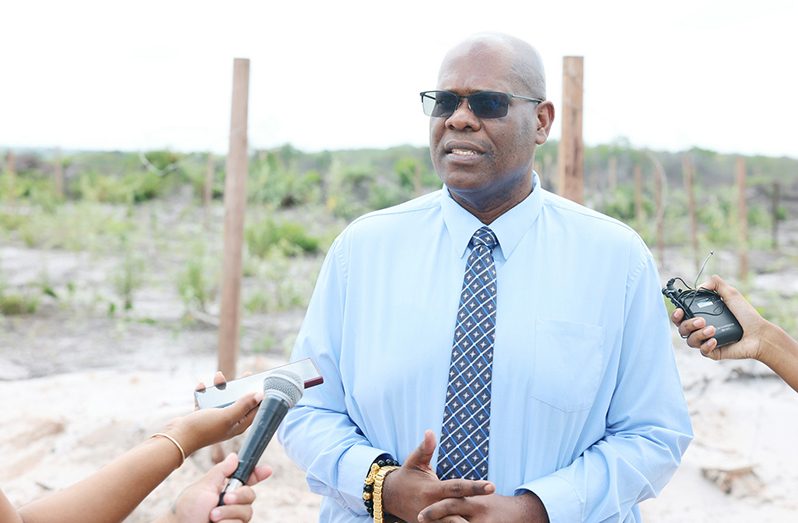CHIEF Executive Officer (CEO) of the Central Housing and Planning Authority (CH&PA) Sherwyn Greaves has taken a firm stance against squatting in Phase Four Amelia’s Ward/Fitz Hope, Linden.
The CEO’s recent ad hoc visit to the community was prompted by a rise in illegal occupation of residential lots and unauthorised construction on lands allocated to families through the proper channels.
Reports indicate that individuals have been unlawfully selling allocated lots, advising buyers to apply through the agency and falsely claiming occupation since 2017.
Greaves warned individuals who have fallen victim to this that any illegal structures on these lands will be demolished, and the agency is not obligated to honour any claims arising from such activities.
The CEO has since made it clear that those engaging in such illicit activities risk hindering their ability to access residential lots from the agency in the future. He underscored that the Ministry of Housing will not be pressured into transactions by those persons involved in illegal activities, as their names are recorded, and this could impede legitimate transactions in the future.
Moreover, Greaves urged legitimate landowners in the area to be vigilant and assist the agency in monitoring the area to prevent squatting on their lands. He assured the public that the Ministry of Housing is working in the interest of all eligible applicants, seeking additional lands from the National Industrial and Commercial Investments Limited (NICIL), and the Guyana Lands and Survey Commission.
Greaves also referenced the ongoing infrastructure works to upgrade the road network in the region with an additional $80 million recently approved for this purpose.
In May of this year, the CEO led a team from the subject ministry on a fact-finding mission at this location in Linden. At that time, their visit was prompted by complaints from contractors regarding halted infrastructure work due to squatters.
It was highlighted by Greaves that over 400 families were allocated residential lots in the area, with an additional 160 families being regularised. However, eight illegal structures were obstructing a key road network, resulting in significant delays.



.jpg)










